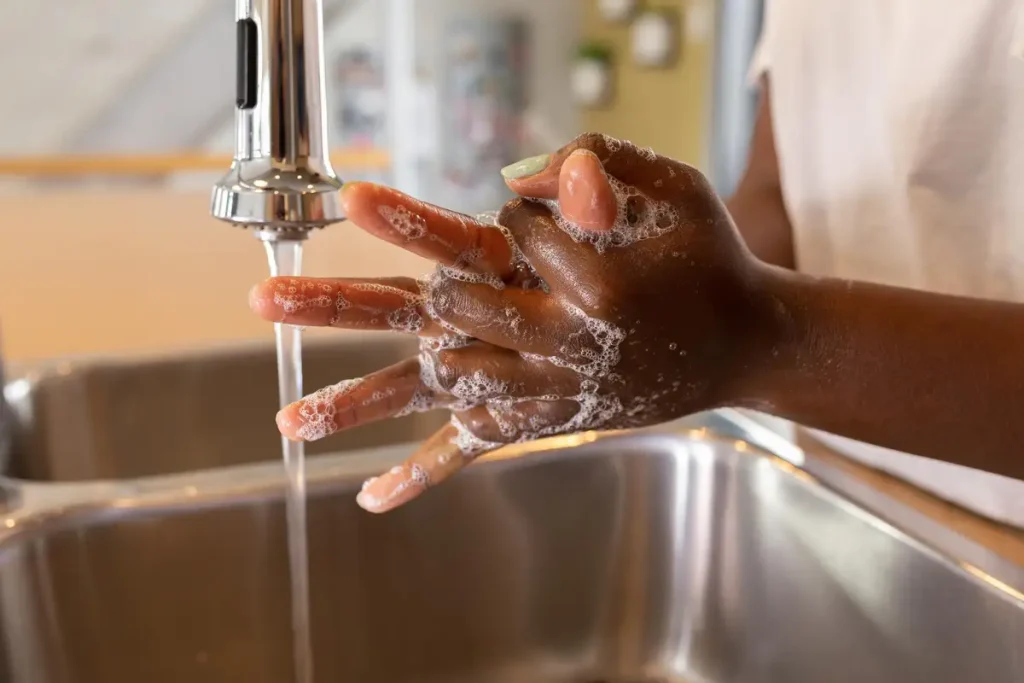The Federal Government (FG), in collaboration with development partners, has reiterated its commitment to promoting inclusive hygiene access across Nigeria, following concerns that only 60 per cent of citizens have access to basic handwashing facilities at home.
This call was made in Abuja on Wednesday during the commemoration of the 2025 Global Handwashing Day, themed “Clean Hands are Within Reach.”
Minister of Water Resources and Sanitation, Joseph Utsev, described handwashing as the first line of defence against infectious diseases such as cholera, emphasising its importance in reducing preventable illnesses.
He explained that the government has continued to implement strategic initiatives, including the Nigeria Roadmap to Hand Hygiene for All and the Clean Nigeria: Use the Toilet Campaign, to expand water, sanitation, and hygiene (WASH) services nationwide.
Read Also: WHO, UNICEF warn: 1 in 4 people still without safe drinking water as inequalities persist
Mr Utsev urged communities, schools, and public institutions to adopt sustainable hand hygiene practices and ensure that facilities are accessible to everyone, including people with disabilities, to strengthen national disease prevention efforts.
Speaking on behalf of the Minister of Environment, Balarabe Lawal, Aghogho Gbetsere noted that consistent handwashing could cut diarrhoeal diseases by up to 50 per cent and respiratory infections by 25 per cent, ultimately improving public health outcomes and productivity.
UNICEF representative, Chisom Adimorah, expressed concern that 40 per cent of Nigerians still lack access to basic hygiene services at home, describing the situation as a major public health challenge.
She reaffirmed UNICEF’s partnership with the Nigerian government in implementing the new global handwashing guidelines developed jointly with the World Health Organisation (WHO).
Cassandra Uzo-Ogbugh, Corporate Affairs and Partnerships Manager at Reckitt Sub-Saharan Africa, highlighted the company’s ongoing advocacy for hygiene through its flagship brand, Dettol.
She disclosed that over N85 billion has been invested in health programmes within three years to promote hygiene education and behavioural change.
Ms Uzo-Ogbugh commended collaborations with government agencies and civil society groups on grassroots initiatives such as the Reckitt Catalyst campaign, urging Nigerians to make handwashing a daily habit for healthier and more dignified living.



